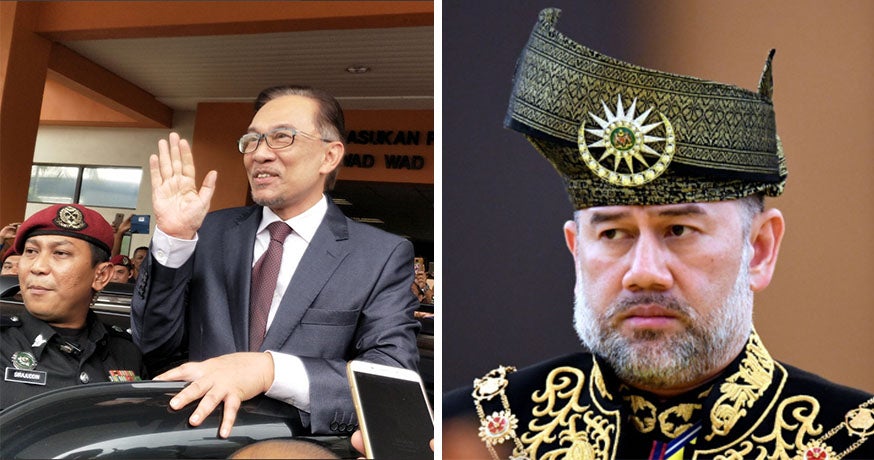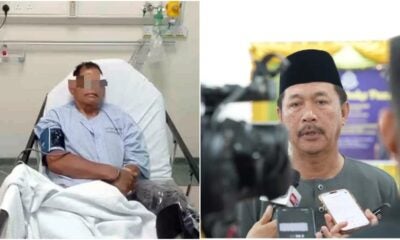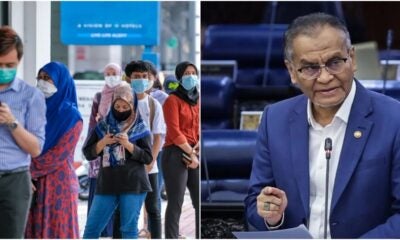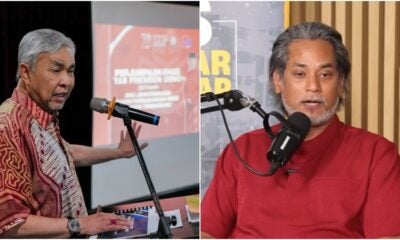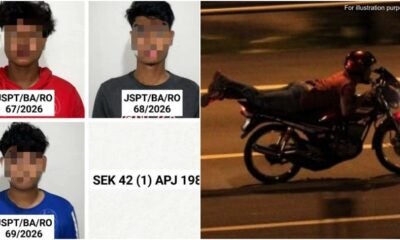ICYMI, Anwar was recently released from prison and given a royal pardon by the Agong on 16 May 2018. But how exactly does a royal pardon work in Malaysia and what does it mean for those who get it? For this, we look towards the Federal Constitution. Don’t worry lah, we know it’s quite complicated to understand (and you also a bit malas right?), so we’re breaking it down for you here!
First, to understand a royal pardon, we must know:
The roles of the YDPA
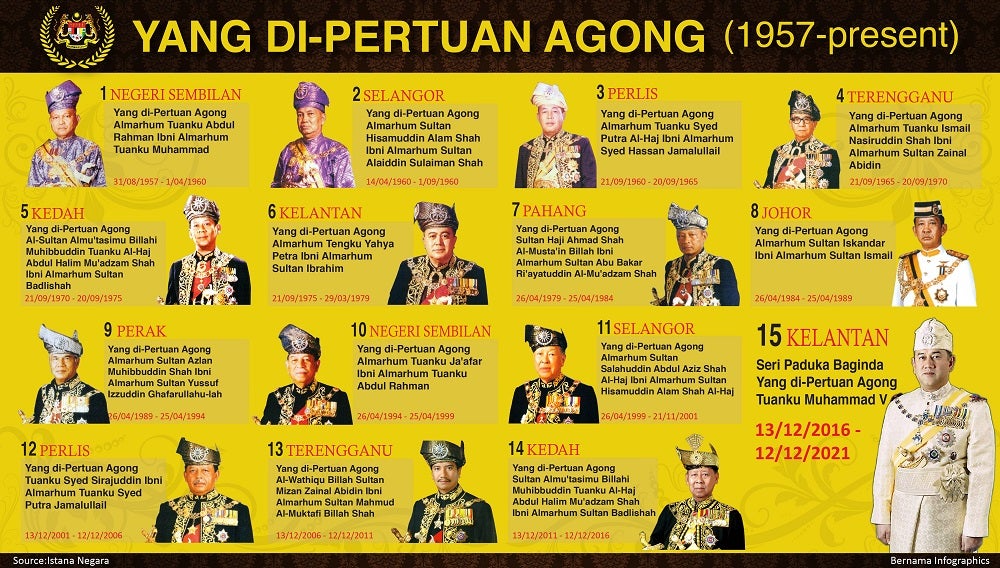
Source: astro awani
The Yang di-Pertuan Agong plays an important role in our country. Among some of the powers of the YDPA are:
- The supreme head of the Malaysians Federation
- The Commander in Chief of the Armed Forces
- The Head of Islam in the four states ruled by appointed Governors, the three Federal Territories as well as in his own state
- The power to appoint a prime minister
- The power to refuse a prime minister’s request to dissolve the Parliament
- The power to declare a state of emergency in Malaysia
- The power to grant amnesty or delay sentencing on any crime
The power to grant amnesty can be seen specifically in Article 42(1) of the Federal Constitution which states:
The Yang di-Pertuan Agong (YDPA) has the power to grant pardons, reprieves and respites in respect of all offences which have been tried by court-martial and all offences committed in the Federal Territories of Kuala Lumpur, Labuan and Putrajaya; and the Ruler of Yang di-Pertuan Negeri of a State has power to grant pardons, reprieves and respites in respect of all other offences committed in his State.
Basically:
- The YDPA has the power to grant pardons for all offences committed in KL, Labuan, and Putrajaya
- The Sultan of each State has the power to grant pardons for all offences committed within his State
This explains how the YDPA has the power to grant Anwar a pardon for him to be released from prison.
So, what does it mean to get a royal pardon?
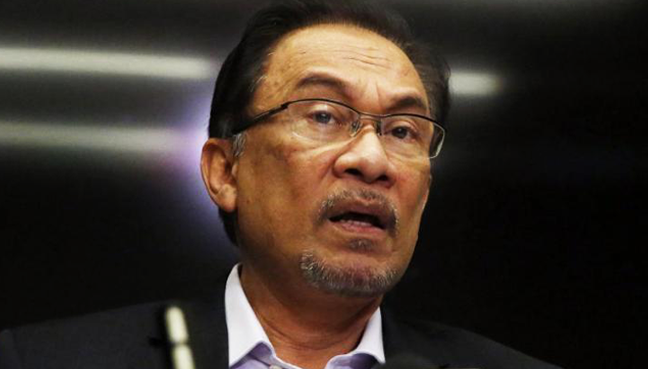
Source: pinterest
In short, getting a royal pardon is like getting a ‘Get out of jail free’ card. Literally. In the case of Anwar, it’s more than that. Getting a royal pardon means immediately removing all legal punishments for an offence, and that means Anwar can continue his political career.
Referring to Article 48(1)(e) of the Constitution, a Malaysian is disqualified from being a member of House of Parliament if:
“He has been convicted of an offence by a court of law in the Federation (or, before Malaysia Day, in the territories comprised in the State of Sabah or Sarawak or in Singapore) and sentenced to imprisonment for a term of not less than one year or to a fine of not less than two thousand ringgit and have not received a free pardon.”
Besides that, those convicted of an offence tried by the courts would be barred from becoming an MP or a Senator for 5 years upon his release UNLESS he receives a royal pardon.
Does this mean I can get a royal pardon as well?
Technically, can lah. As long as the YDPA feels like you deserve one. The YDPA is free to give out royal pardons as and when he likes. This means that the YDPA does not act as a judge when giving out royal pardons, but simply on the basis that he has the power to do so as the YDPA. So powerful, right?
Although it is at the YDPA’s discretion on deciding who to give a royal pardon to, according to Article 42(1) alongside Article 42(4) and Article 40(3)(a), it indicates that the YDPA has to exercise this discretionary power in line with the advice from the Parole Board.
So there you have it. Congratulations Anwar and we hope you’ll enjoy your bit of freedom before you get down to work!
Also read: Anwar Will NOT Become PM Immediately Upon Release, Says DPM Dr Wan Azizah

